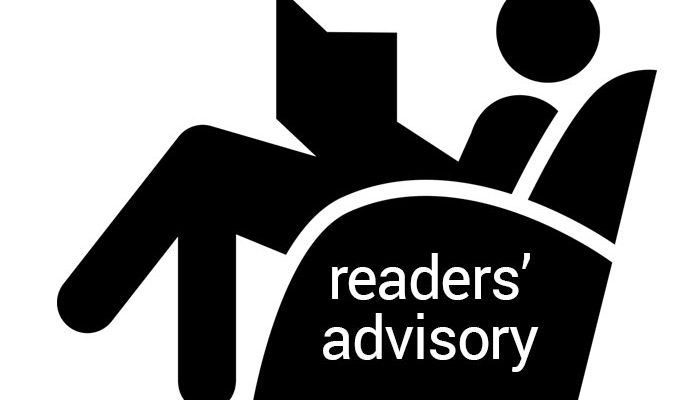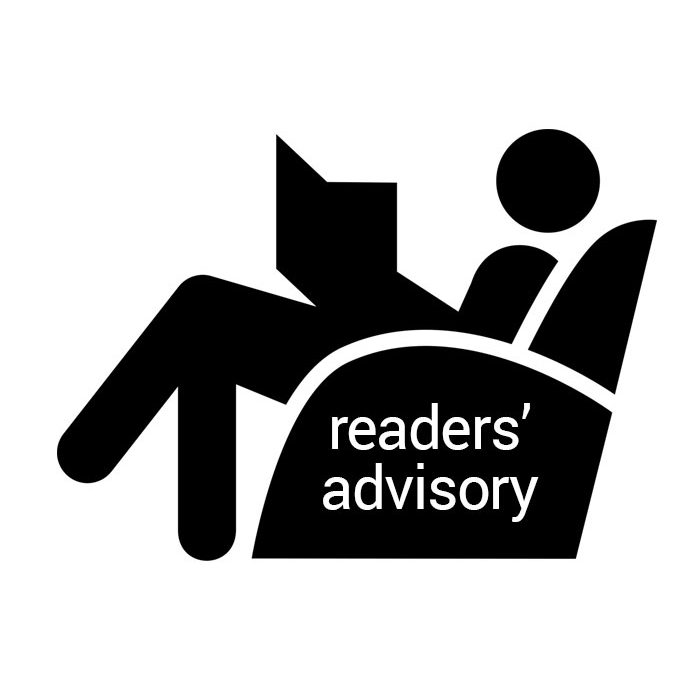It’s a new year and a great time for making reading resolutions. One form this resolution may take is to respond to a Reading Challenge. Taking this type of challenge can not only be fun, but also a great opportunity to change some of our entrenched reading habits.

Enjoy the Conversation
Have you ever had a really great conversation with someone about books? She tells you that she just read a book she loved, you read it too and you loved it.
You talk about how that book was like another book you read with the same setting which you think she would really enjoy. Maybe, another friend says he can’t find a book to read because the last book he read wasn’t that great, so you tell him that you just read a book which had a really interesting character that he is sure to enjoy.
If you have had these conversations, you have already been offering Readers’ Advisory. Talking with people about books is exactly what we mean when we talk about the Readers’ Advisory Conversation.
The Conversation
Most library staff are comfortable and familiar with the reference interview because we are discussing what the user needs in order to provide the most accurate and appropriate information material. We know our collection and we are asking questions to better understand what the user is looking for so that we can find it.
In the Readers’ Advisory conversation, we are asking questions to find out about what someone enjoys in a reading experience and what they might be looking for this time in selecting a book. We have to get to know them a little more, we have to be a bit nosey and we have to be committed to finding them the best book in our collection for their current reading mood.
“I’m not sure you can help me but …”
Readers don’t always know to ask library staff about reading suggestions. Many will start the conversation with, “I’m not sure you can help me but I can’t find a good book to read.” Since reading is just a fun activity, readers think that it can’t be what library staff are paid to assist with. Take time to dispel that myth and tell your reader, “Of course, we can help you with that!”
Start with questions like, “Is there a book that you read recently that you enjoyed?” or “What do you like best about a good book?” Use Nancy Pearl’s “Doorways” – character, story, setting and language – to further define what the reader is looking for. Unlike the reference interview, you want to ask more closed-ended questions to help to narrow the search such as “Do you like a long or short book?” or “Do you like a book set in another country?”
As you talk about the books you are suggesting, you will get more feedback to determine if you are on the right track or need to offer something else.
Building Trust
When you offer a reading suggestion, be casual and don’t push your reader into borrowing the book if they don’t like it. Let your reader spend some time with the book, offer them a chair and a place to read the cover and some of the book to see if it is the right one. Don’t linger; give your reader some space but return promptly to see if they need more assistance and to get some feedback on the books that you selected.
You are building trust with your reader through the conversation and you need to make your reader feels comfortable with both accepting and rejecting your suggestions. There are a lot of books in the library – if your first selections aren’t right, try again to ask questions about what they don’t like about the books. Readers’ Advisory is a process and you need to be open to the conversation changing directions several times before you are done.
The Happy Reader
Finally, success! Your reader is happy with one or many of the books you suggested. Be sure to ask them to return with feedback because you want to know how you did and if the book was enjoyed. Don’t restrict yourself to just fiction, offer non-fiction, film, magazine or even music suggestions.
Readers’ advisors are doing their best work when they can provide a map of the library’s resources to a reader who is interested and engaged in a story. The Readers’ Advisory Committee’s 3rd competency, Readers’ Advisory Conversation, will help you with this skill and more, to better serve readers in your library.
Diana Krawczyk is the Manager of the Readers’ Den Department, Mississauga Public Library. She is a member and past chair of the OLA Readers’ Advisory Committee.

